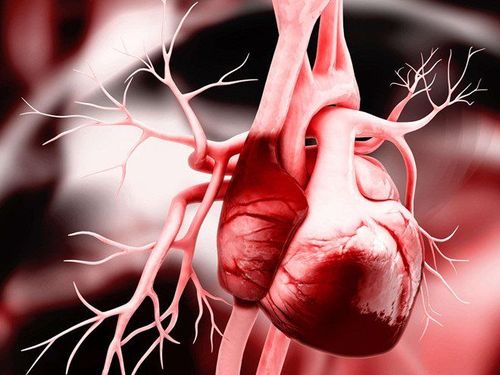This is an automatically translated article.
The article was professionally consulted by Specialist Doctor II Nguyen Quoc Viet - Interventional Cardiologist - Department of Medical Examination & Internal Medicine - Vinmec Danang International General Hospital.In the treatment of stage 3 heart failure, besides medication and lifestyle adjustments, doctors will consider the direction of using assistive devices. One of them is an implantable Cardioverter Defibrillator (ICD).
1. Implantation of a defibrillator pacemaker in stage B
In stage B, the patient has structural heart disease but no symptoms of heart failure. The doctor will consider implanting a defibrillator pacemaker (ICD) for the patient when all of the following conditions are satisfied:Ischemic cardiomyopathy with an ejection fraction EF ≤ 30%; At least 40 days after acute myocardial infarction; Grade I functional heart failure with optimal medical therapy; Have a prognosis of more than 1 year. If the above criteria are fully met, the indication for treatment of stage B heart failure with a defibrillator is considered reasonable. In the case of a patient without ischemic cardiomyopathy, but still meeting the remaining 3 criteria, this ICD implantation procedure requires careful consideration. Because treatment outcomes are often uncertain or unproven, even though the propensity to benefit the patient still prevails.

2. Treatment of heart failure stage 3
Device therapy is one of the methods performed when the patient has a history or current symptoms of heart failure (Stage C), including:Myocardial resynchronization (CRT); Biventricular pacing Ventricular assist devices; Implant a defibrillator pacemaker (ICD). In which, ICD implantation procedure is considered to be performed, but the following device recommendations should be followed when treating stage 3 heart failure as follows:
2.1. Group I - Level of Evidence A There is sufficient evidence from multiple randomized clinical trials to demonstrate that implantation of a defibrillator pacemaker is effective for patients. Specifically, an ICD helps in the primary prevention of sudden death in patients with:
Ejection fraction EF ≤ 35%; 40 days after myocardial infarction and functional heart failure classification II - III; Prognosis of survival > 1 year. 2.2. Group I - Level of Evidence B A small number of clinical studies have shown that ICD therapy is beneficial in the primary prevention of sudden death in patients with the following:
Ejection fraction EF ≤ 30%; 40 days after myocardial infarction; Heart failure functional class 1 on treatment with a prognosis of >1 year. 2.3. Class IIb - Level of Evidence B For patients who are frequently hospitalized, physically ill, or have severe comorbidities, implantation of a defibrillator pacemaker (ICD) is of low benefit and is uncertain. There has even been strong conflicting evidence for treatment effectiveness in some studies.
3. Pacemakers defibrillation in the EASY stage
In indications for the treatment of stage D heart failure, asymptomatic patients with an ejection fraction EF ≤ 35% and a history of myocardial infarction should consider placing an ICD.For patients with end-stage heart failure, who have had a defibrillator installed, information is needed about the possibility of stopping defibrillation. In addition, the physician should discuss with the family the indications for a defibrillation pacemaker (ICD) shutdown if placed in the care of patients with end-stage heart failure.
Contraindicated (indication for group III) aggressive measures, including intubation and implantation of a defibrillator, in patients who:
Have symptoms of functional class IV heart failure (although are resting or any physical activity increases fatigue, shortness of breath, ...). Clinical improvement by these measures is unlikely.
4. Heart failure screening package at Vinmec

Group 1: Customers who have no symptoms of heart failure but have other cardiovascular diseases (hypertension, angina, diabetes, dysrhythmias). heartbeat, ... ). Or people in middle age (men ≥ 45 years old, women ≥ 50 years old), especially those with tobacco addiction, alcohol abuse or obesity. Group 2: People with common symptoms of heart failure such as shortness of breath, shortness of breath, persistent dry cough, feeling like body weakness, heaviness in the chest, dizziness, dizziness, fainting spells, pulse heart failure, edema, little urine, liver irritation, swollen neck veins,... When choosing to use the Heart Failure package at Vinmec International General Hospital, customers will be examined by Cardiology specialist, general practitioner. blood and urine cell analysis, quantification and measurement of substance activity in the blood, electrocardiogram, routine and stress echocardiography, chest x-ray along with a number of other services.
Please dial HOTLINE for more information or register for an appointment HERE. Download MyVinmec app to make appointments faster and to manage your bookings easily.














